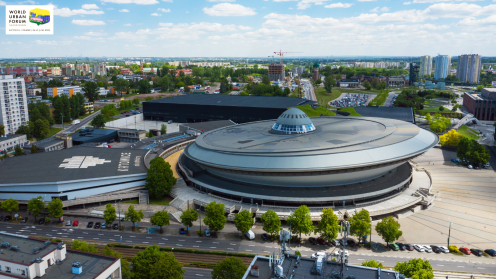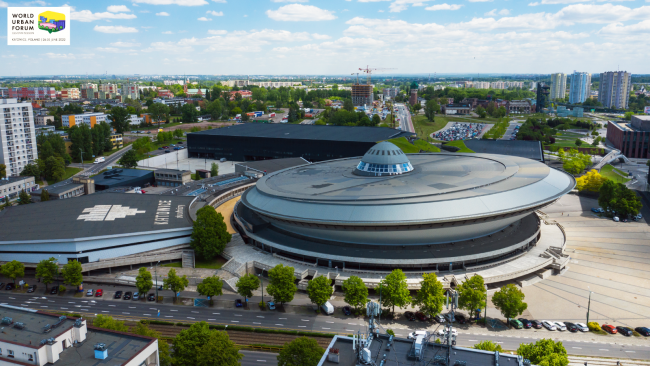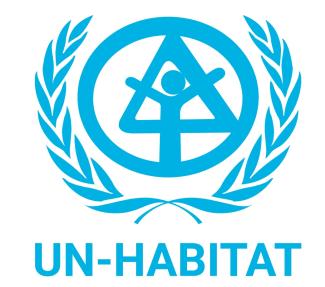Summary
The “triple C crises” of COVID-19 pandemic, climate disasters, and emerging conflicts are converging on cities, pushing already marginalized populations further into poverty. Against this backdrop, many participants agreed that the world’s race towards the Sustainable Development Goals (SDGs) will be decided in cities, and it will be decided soon.
Final report
Summary report 26–30 June 2022
All coverage
Cities are disproportionately affected by global crises like the climate emergency, the COVID-19 pandemic, armed conflict, or natural disasters. At the same time, local action is crucial to achieve multiple Sustainable Development Goals (SDGs), including on inequalities, food security, housing, and sustainable transport. As the level of decision making closest to the people, municipal and local governments have a fundamental impact on the wellbeing of a rapidly growing share of the world’s population. By 2050, 70% of all people are expected to live in cities. Sustainable urbanization will thus be a key driver to implement the 2030 Agenda for Sustainable Development.
In 2001, the UN established the World Urban Forum (WUF) as an open-ended, technical forum to advance debate on the impacts of rapid urbanization on communities, cities, economies, climate change, and policies. The work of the WUF is guided by the New Urban Agenda (NUA), adopted at the third UN Conference on Housing and Sustainable Urban Development (Habitat III) in 2016. The NUA provides a vision of how urbanization can be a transformative force towards achieving the SDGs. It serves as a resource for aligning action for sustainable urbanization with specific SDGs enabling cities to be key players in addressing global challenges.
The overall mandate of the WUF is to raise awareness of sustainable urbanization, improve knowledge of sustainable urban development, increase coordination and cooperation among stakeholders towards sustainable urbanization, and provide inputs from multilateral organizations, subnational and national governments, and other stakeholders for reporting on NUA implementation. WUF11 worked to advance these goals under the theme, “Transforming our Cities for a Better Urban Future,” focusing on the following thematic objectives:
- Urban crises and urban recovery;
- Equitable and urban futures;
- Building resilience for sustainable urban futures;
- Future urban economy and finance;
- Integrated governance in spatial planning for a more just, green, and healthy urban future;
- Transforming cities through innovative solutions and technologies; and
- Greener urban futures.
The WUF11 agenda focused on urban crises and urban recovery with an extraordinary dialogue session and special sessions on urban recovery frameworks and rebuilding communities and neighborhoods after war and natural disasters. These themes featured prominently in the meeting’s declared actions and commitments that were released during the closing session.
WUF11 was organized by the UN Human Settlements Programme (UN-Habitat), the Polish Ministry of Development Funds and Regional Policy, and the Muncipal Office of Katowice. Most sessions were offered in a hybrid format, allowing participants from around the world to join discussions online.
View past and future events
Past event
1st Session of the Habitat II Preparatory Committee
Past event
1994 Year-end Update on Habitat II
Past event
2nd Session of the Habitat II Preparatory Committee
Past event
1995 Year-end Update on Habitat II
Past event
3rd Session of the Habitat II Preparatory Committee
Past event
Habitat II
Past event
20th Session of the Governing Council (GC-20) of UN-HABITAT
Past event
3rd Session of the World Urban Forum (WUF3)
Past event
7th Session of the World Urban Forum (WUF7)
Past event
Habitat III Informal Hearings with Stakeholders
Past event
9th Session of the World Urban Forum (WUF9)
Past event
1st Session of the UN Human Settlements Programme (UN-Habitat) Assembly
Past event
10th Session of the World Urban Forum (WUF10)
Past event
11th Session of the World Urban Forum (WUF11)
Past event


